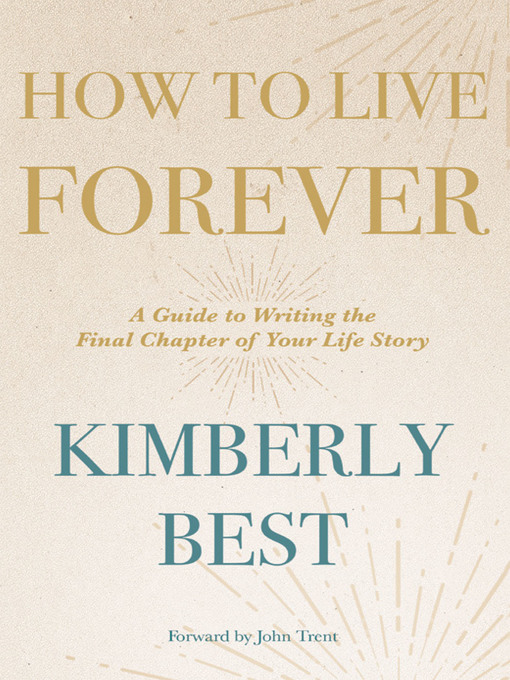Your life is a story, and it's yours to write, all the way through to the end. There are numerous decisions to be made regarding aging, illness, and end-of-life issues, but many people put off those decisions until it's too late. We may be purposeful in planning for our lives, but we often leave the last piece, the final chapter, undefined.
How to Live Forever seeks to lay a foundation for people to live well in the time they have, to leave their stories behind as their legacies, and to write their own best ending so that their final wishes can be honored. Author Kimberly Best encourages you to consider what you want the final chapter of your life to look and feel like, providing you with tools and prompts that can help you have difficult conversations regarding legal decisions, health care plans, relationships, and death and dying. If we recognize the finite nature of our days, we can live purposefully, plan ahead for the end of our life story, and die without regret, living fully to the end and finishing well.
Visit bestconflictsolutions.com for additional tools and worksheets to help you write your last chapter.
- Women's Prize For Fiction 2025
- Spring - just because they have Spring in the title
- Booker Prize - winners & nominees
- Royal Society Science Book Prize - winners & nominees
- Wainwright Prize - winners & nominees
- Gypsy, Roma, and Traveller Histories
- Bluemoose Books & Local Authors
- Death Positive Libraries collection
- Libraries of Sanctuary Collection
- See all ebooks collections
- Women's Prize For Fiction 2025
- Spring - just because they have Spring in the title
- Business Information collection
- Death Positive Libraries collection
- Libraries of Sanctuary Collection
- Royal Society Science Book Prize - winners & nominees
- Wainwright Prize - winners & nominees
- See all audiobooks collections

